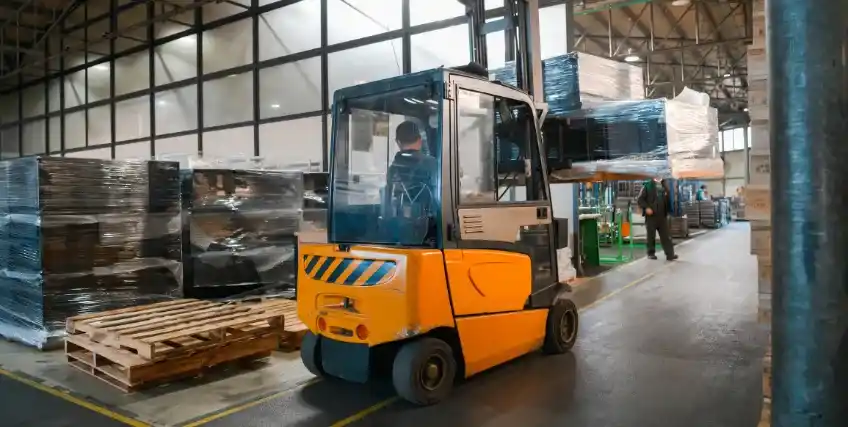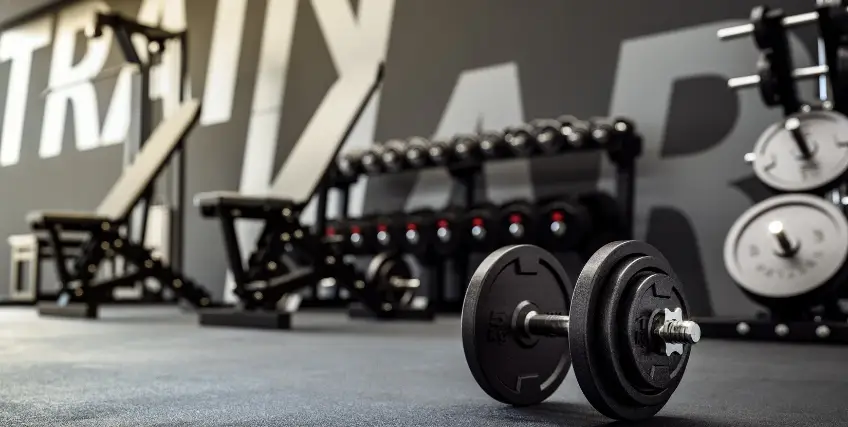Understanding the Tax Implications of Business Equipment Financing
September 17, 2025 | Last Updated on: September 17, 2025

For small business owners, acquiring new equipment, used equipment, medical equipment, or construction equipment can come with high upfront costs. As a result, acquiring these equipment can strain working capital and affect cash flow.
To overcome these difficult situations, business equipment financing solutions provide a way for business owners to acquire the right equipment without large down payments. Beyond managing finances, these business equipment loans can offer substantial tax savings. However, it’s important to understand how business equipment financing options and equipment leasing options impact taxes to help business owners make smarter decisions.
In this guide, we’ll highlight the potential tax benefits of business equipment financing, the impact of cash flow, and all about business equipment tax deduction for your business needs.
What Is Business Equipment Financing?
Business equipment financing is a funding solution that allows companies and small businesses to acquire different types of equipment without paying the full upfront cost. This approach keeps working capital available for business operations while securing essential assets.
Business Equipment Financing Options Include:
Here are some of the business equipment financing options for small business owners in the U.S. By exploring these equipment financing solutions, business owners can find the best option for their financing needs, credit score, and annual revenue.
Equipment Loans
Equipment loans allow business owners to borrow funds from a lender or equipment financing companies to purchase business equipment. Business owners can then purchase equipment and repay in easy monthly payments instead of paying upfront.
Equipment Leasing
Equipment leasing is a type of business equipment financing option where borrowers can rent new equipment or used equipment, providing them with flexible payment options. Operating leases let businesses rent equipment with lower monthly payments and fully deductible lease expenses, without ownership. Whereas capital leases (or hire purchase) treat the equipment as an asset, allowing depreciation and interest tax deductions while leading to eventual ownership.
Hire Purchase
This business equipment financing option helps acquire ownership of heavy equipment or construction equipment after completing repayments in easy monthly payments. Therefore, this approach helps spread costs while building asset ownership for small business owners.
Term loans
Term loans offer a lump sum loan amount and provide a fixed repayment schedule over a set term, allowing business owners to finance equipment purchases. These loans often come with predictable monthly payments and potential tax deductions on interest.
SBA and Lines of Credit
Some small businesses use SBA loans or lines of credit for equipment purchases, providing a flexible path for business equipment financing while managing cash flow.
Key Benefits of Equipment Financing
Some of the known benefits of business equipment financing include:
- Access the Right Equipment: Acquire different types of business equipment including medical equipment or construction equipment without large down payments.
- Flexible Payment Options: Choose term loans, equipment leasing, or monthly payment programs that fit business financing needs.
- Preserve Working Capital: Maintain cash for operations and working capital needs.
- Maximize Tax Deductions: Take advantage of new business tax deductions and business equipment tax deductions.
- Support Business Financing Needs: Equipment financing solutions complement lines of credit, SBA loans, or business banking programs.
Possible Tax Benefits of Business Equipment Financing
Business equipment financing not only supports cash flow but also offers multiple tax benefits. U.S. business owners can leverage new business tax deductions and business equipment tax deductions to reduce taxable income. However, be sure to consult a tax professional before making any decisions.
Section 179 Deduction
Section 179 allows businesses to deduct the full cost of qualifying equipment purchases in the year of acquisition, whether financed or purchased outright.
- Eligibility: Available to businesses with sufficient annual revenue and credit score requirements.
- Qualified Equipment: Includes medical equipment, construction equipment, heavy equipment, and other types of equipment.
- Tax Savings: Reduces taxable income and preserves working capital.
Bonus Depreciation
After reaching the Section 179 limit, businesses can use bonus depreciation.
- Current Rate: In 2025, the bonus depreciation is 100% of the equipment’s cost in the first year.
- Eligible Equipment: Business equipment, construction equipment, heavy equipment, and medical equipment purchased new or used.
- Benefit: Further reduces taxable income and helps preserve working capital.
Interest and Lease Payment Deductions
- Interest Deductions: The interest portion of business equipment financing is typically tax-deductible.
- Lease Payments: Equipment leasing allows monthly payments to be deductible as a business expense. This provides immediate tax savings without a large down payment.
- Flexible Payment Options: Financing programs offered by equipment financing companies allow business owners to select payment options and lease terms that suit their business financing needs.
SBA and Term Loan Advantages
- SBA loans or term loans used for equipment purchases can provide lower interest rates and predictable monthly payments.
- These business equipment financing solutions help small businesses maintain cash flow while investing in new equipment.
- Tax benefits apply whether the equipment is financed via a business loan, equipment loan, or lines of credit.
How Business Equipment Financing Impacts Cash Flow
Maintaining a healthy cash flow is crucial for small business operations. Business equipment financing solutions allow business owners to acquire essential types of equipment while keeping money available for daily expenses.
Benefits include:
- Preserve Working Capital: Avoid large down payments and keep funds available for business needs.
- Manage Payments: Spread costs across monthly payments, term loans, or lease terms.
- Predictable Cash Flow: Structured repayment schedules simplify financial planning.
Choosing the Right Equipment Financing Option
Selecting the ideal business equipment financing solution depends on your business needs, credit score, and annual revenue.
Considerations:
- Ownership Goals: Opt for business equipment loans if you want long-term ownership.
- Cash Flow Needs: Equipment leasing reduces upfront costs and supports ongoing working capital management.
- Tax Strategy: Work with a tax professional to optimize business equipment tax deductions and other tax savings.
- Lender Selection: Choose FDIC-insured lenders, equipment financing companies, or SBA programs with transparent disclosures.
Common Mistakes to Avoid
Even with the best business equipment financing solutions, mistakes can reduce tax savings or strain cash flow:
- Ignoring Tax Benefits: Overlooking Section 179 or bonus depreciation can result in lost tax savings.
- Overlooking Lease Terms: Not understanding lease terms may create hidden costs.
- Neglecting Maintenance Costs: Financing heavy equipment or construction equipment without considering upkeep can impact working capital.
- Rushing Equipment Purchases: Acquiring equipment purchases without assessing financing needs, credit score, or personal credit can be risky.
It’s advised to partner with financial advisors, equipment financing companies, or business banking professionals to navigate underwriting and eligibility requirements efficiently.
Industry Applications
Healthcare: Clinics and hospitals often need medical equipment. Using business equipment financing solutions, they can purchase new equipment without straining working capital.
Construction: Contractors require construction equipment and heavy equipment financing. Business equipment loans and equipment leasing help manage monthly payments and optimize cash flow.
Real Estate and Other Sectors: Businesses in real estate, hospitality, or services can leverage equipment financing programs for business needs. This preserves working capital, improves cash flow, and allows access to the right equipment.
Bottom Line
Business equipment financing is essential for small business owners seeking tax savings and improved cash flow. Whether through equipment loans, equipment leasing, or SBA programs, business owners can acquire new equipment, used equipment, or heavy equipment without large upfront costs.
Leveraging tax strategies like Section 179 deductions and bonus depreciation reduces tax for business owners while preserving working capital. Moreover, using equipment financing companies, FDIC-insured lenders, or equipment leasing programs ensures access to the right equipment under transparent disclosures.
You can also consult a financial advisor to maximize new business tax deductions, optimize business equipment tax deductions, and make equipment purchases that strengthen your business’s financial future.
FAQs About Business Equipment Financing Options
Why would a small business choose to finance used equipment?
Financing used equipment allows businesses to save money while still acquiring valuable assets. Many lenders offer equipment financing solutions for both new and used equipment. This approach stretches budgets further and supports cash flow management. Additionally, businesses also gain access to tax benefits like depreciation, which reduces taxable income.
Are there tax advantages associated with equipment financing or leasing?
Both equipment financing and leasing provide significant tax savings. When financing, businesses can deduct depreciation, claim Section 179 deductions, and use bonus depreciation. While equipment leasing allows businesses to deduct the monthly payments as operating expenses. Hence, each equipment financing option reduces taxable income while supporting cash flow.
What tax deductions are available for equipment purchased or financed?
Businesses can often deduct the full purchase cost in the first year using Section 179. They may also use bonus depreciation to further reduce taxable income. These deductions apply to many types of equipment, including construction equipment and medical equipment. Moreover, both new and used equipment may qualify under IRS rules.
How much equipment cost can be deducted under Section 179 in 2025?
For 2025, the IRS allows businesses to deduct up to $2,500,000 of qualifying equipment costs under Section 179. This is especially useful for small businesses making large equipment purchases. The deduction starts to phase out above $4,000,000 in spending. Therefore, these limits give flexibility while offering substantial tax savings.
What’s the difference between operating and capital leases for tax purposes?
An operating lease is treated as a rental, so lease payments are deductible, but no assets are owned. A capital lease (also called a finance lease) treats the equipment as a purchase. This allows businesses to claim depreciation and interest deductions. The choice depends on cash flow goals and ownership needs.
Frequent searches leading to this page
Term Loans are made by Itria Ventures LLC or Cross River Bank, Member FDIC. This is not a deposit product. California residents: Itria Ventures LLC is licensed by the Department of Financial Protection and Innovation. Loans are made or arranged pursuant to California Financing Law License # 60DBO-35839




